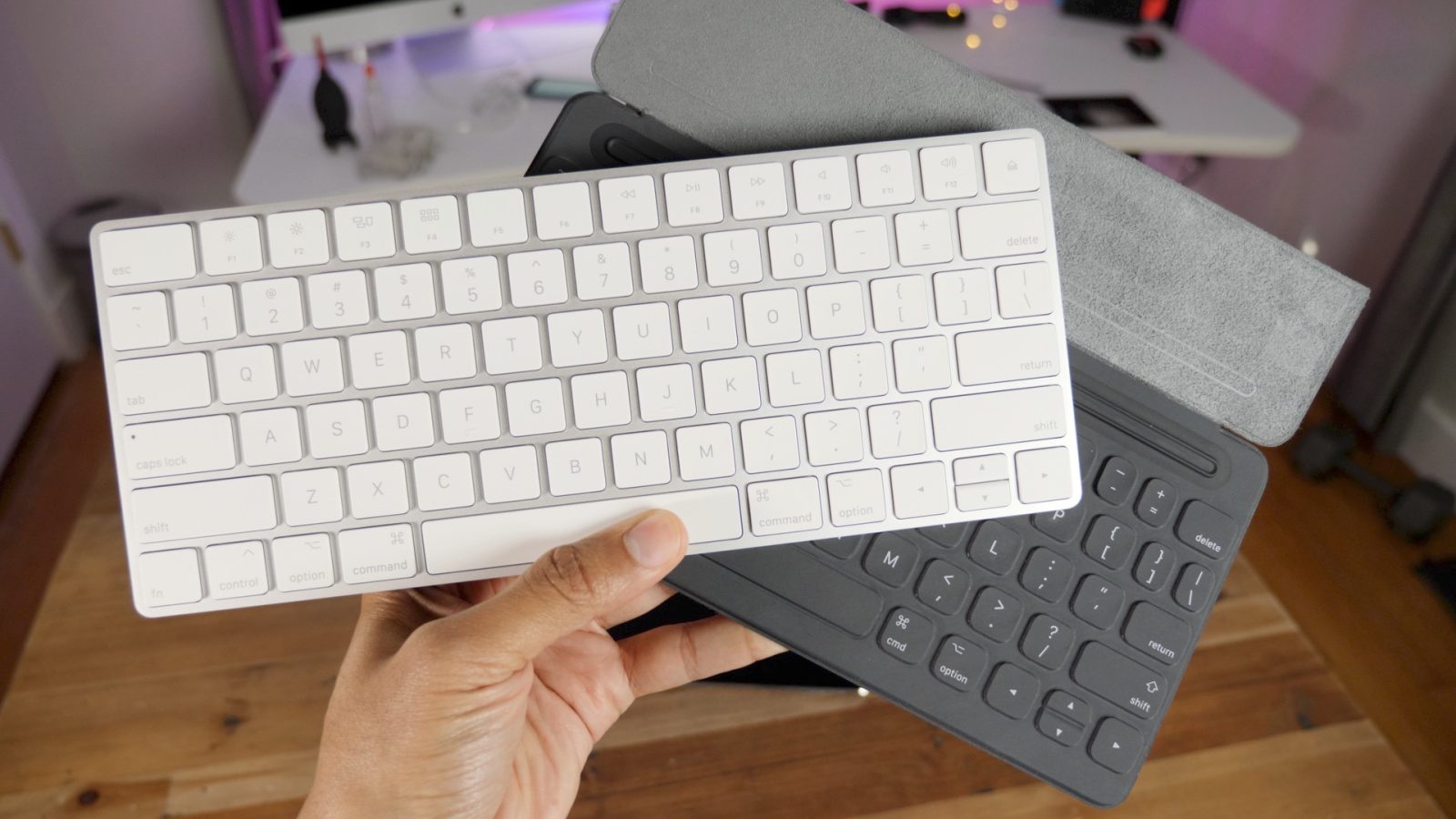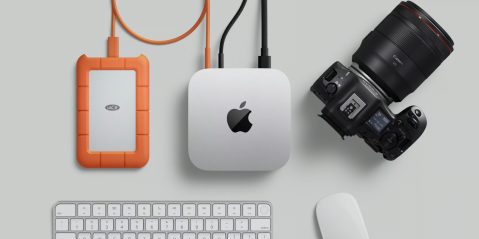
I’ve been using the Smart Keyboard + iPad Pro combination since the updated versions launched a couple of months ago. This combination has outright replaced my MacBook Pro for work on the go, but I still use a 5K iMac as my main work machine while in the office.
As an iMac owner who wields a Matias Wireless Aluminum Keyboard, the Magic Keyboard that came with the 5K iMac has remained tucked away in its original box up until recently. Since it was collecting dust in the closet, I decided that I should give the Magic Keyboard + iPad Pro combination a try to see how I liked it. Is it better than the Smart Keyboard? Here are a few of my observations.
Magic Keyboard
The Magic Keyboard, being a full-sized keyboard with full-sized keys and excellent key travel, is obviously much better for typing than the Smart Keyboard. It’s no mechanical keyboard with Cherry MX Brown switches (my favorite), but when compared to the Smart Keyboard, the Magic Keyboard is far and away better when it comes to comfort and typing feedback.
The Magic Keyboard is also a great option for those who don’t always need their keyboard to be with them. If you prefer to travel light, perhaps only using a Smart Cover for protection, the Magic Keyboard can always be called upon in situations where a keyboard is required.
Video walkthrough
Subscribe to 9to5Mac on YouTube for more hands-on videos
Unlike the Smart Keyboard, which must stay attached to your iPad Pro via the Smart Connector when in use, an external Bluetooth Keyboard allows for more flexibility when it comes to the placement of the iPad, viewing angles, etc. Bluetooth keyboards will also work with a larger variety of devices like regular iPad models, the iPhone and Apple TV, and obviously the Mac.
The Magic Keyboard also enjoys a full row of function keys, and although only a few of them apply to the iPad, it’s nice to have dedicated keys for brightness, music playback, and volume.
And because the Magic Keyboard is super-compact and light — you can fit almost two of them within the footprint of a 12.9-inch iPad Pro — it’s not a huge inconvenience to keep it tucked away in a travel bag.
Smart Keyboard
The biggest advantage of the Smart Keyboard — and it is a sincere advantage — is the fact that it’s always available, never needs to be paired, and never needs to be recharged. The convenience of the Smart Keyboard is what sets it apart from Bluetooth-connected keyboards like the Magic Keyboard.
Its origami folding style may seem a bit cumbersome at first, but after you get adjusted to folding it up and unfolding it, doing so becomes second nature.
The Smart Keyboard also doubles as a cover for the iPad Pro’s display, which means it’s more than just a keyboard; it’s a device that’s capable of protecting your investment as well.
Depending on which model you buy, the Smart Keyboard is $60-$70 more expensive than the Magic Keyboard. The price difference alone may be enough to help you decide which one is right for you, but I urge you to seriously think about the applied use-cases.
Do you often find yourself needing to type on a whim while out and about? Do you hate the idea of recharging your keyboard? Do you want a keyboard that’s easy to travel with? Is typing feedback and responsiveness of primary concern?
In the end these are two very different devices, but the Magic Keyboard arguably provides more overall value for your dollar. Not only is it built better, but it features a rechargeable battery, and can pair with virtually any Bluetooth-enabled device. It’s also significantly more responsive and comfortable to type on.
However, when it comes to the iPad, a device that I’ve used to replace my MacBook Pro while away from my iMac, convenience trumps all. Having an always-attached keyboard that’s immediately ready to type on makes the Smart Keyboard the better choice for my use case, even if it’s inferior to the Magic Keyboard a variety of other areas.
What are your thoughts on the Magic Keyboard vs Smart Keyboard? Which one do you prefer to use?
FTC: We use income earning auto affiliate links. More.









Comments